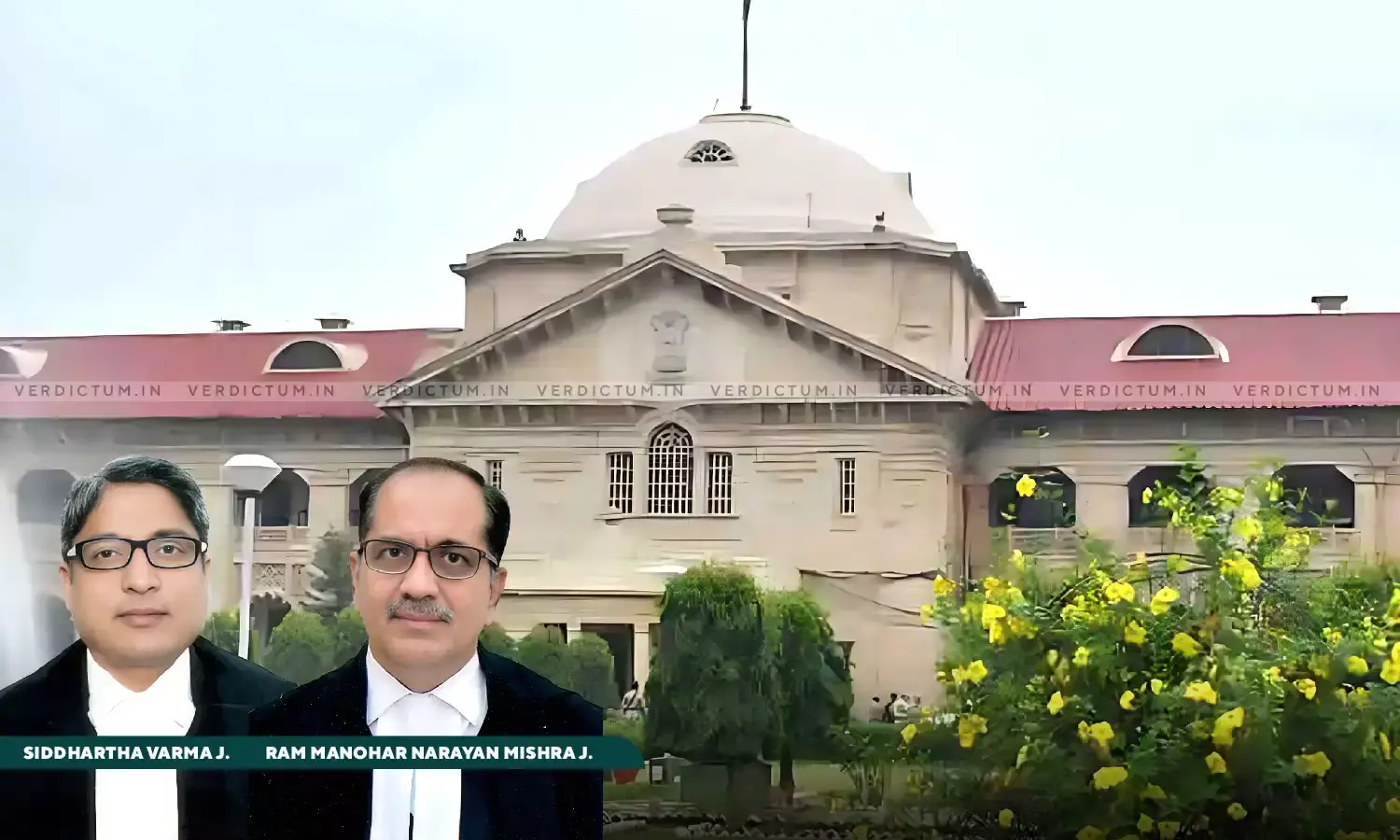No Malafide Could Be Attached To ED’s Act: Allahabad HC Refuses To Quash FIR Against IAS Officer In Chhattisgarh Liquor Scam Case
The Allahabad High Court has refused to quash FIR (First Information Report) against IAS (Indian Administrative Service) Officer Anil Tuteja in a case relating to the Chhattisgarh Liquor Scam.
The Court was deciding a batch of criminal miscellaneous writ petitions seeking to quash FIR against the accused.
A Division Bench of Justice Siddhartha Varma and Justice Ram Manohar Narayan Mishra said, “… we are of the view that there was nothing malicious in the fact that when the State of Chhatisgarh did not react to the communication dated 11.07.2023, then the ED had written to the State of Uttar Pradesh on 28.07.2023 about the activities which were being done in the State of Uttar Pradesh. The two communications dated 11.07.2023 and 28.07.2023 were sent in quick succession and, therefore, no mala fide could be attached to this act of the ED. If the State of Chhatisgarh did not react to the communication dated 11.07.2023 and the State of Uttar Pradesh reacted to the communication dated 11.07.2023 then it could not be said that, because the State of Chhatisgarh did not react to the communication dated 11.07.2023, the communication dated 28.07.2023 was sent to the State of Uttar Pradesh.”
Senior Advocate Siddharth Dave, Advocates Saksham Srivastava, Vinayak Mithal, Rajiv Lochan Shukla, Imran Ullah, and Shishir Prakash appeared for the petitioners while Advocates Jitendra Prasad Mishra and Pawan Kumar Srivastava appeared for the respondents.
Facts of the Case -
In 2020, the Income Tax Department carried out certain search and seizure operation on the premises owned by the petitioner Anil Tuteja. Thereafter, statements were recorded of various individuals. Then a case was filed by the Department before the Additional Chief Metropolitan Magistrate, Tees Hajari, New Delhi under Sections 276(C), 277, 278, and 278E of the Income Tax Act, 1961 (ITA) read with Sections 120-B, 191, 199, 200, and 204 of the Indian Penal Code (IPC) for the Assessment Year 2020-21. Based on this Income Tax Complaint, the Enforcement Directorate (ED) registered an Enforcement Case Information Report (ECIR), alleging that a liquor scam in Chhattisgarh State had occurred.
Meanwhile, the Magistrate returned the said complaint for the lack of territorial jurisdiction. This was appealed by the Department and certain accused persons including the petitioner filed various writ petitions before the Supreme Court. The Apex Court protected them from any coercive action being taken by the ED. While the interim orders were pending, the ED under the Prevention of Money Laundering Act, 2002 (PMLA) wrote to the Additional Director General of Police (ADGP) and shared certain information in respect of a company which was sent and was then taken cognizance of by the Police. Accordingly, an FIR was lodged by the U.P. Police against the accused persons. Hence, the petitioner was before the High Court.
The High Court in view of the above facts, observed, “We are of the considered view that when the trial takes place then of course the statements recorded at the time of investigation would not be admissible.”
The Court added that, whenever the investigating agency has a doubt as to whether the makers of the statement were bringing to light any crime then that information could always be used for initiating an investigation or for the purposes of further forwarding a particular investigation which was already engaging the attention of a particular investigating agency.
“Thus, it will be very unsafe to accept the arguments of the learned counsel for the petitioners that for all initiation of criminal cases, statements made before the authorities under Section 50 of the PML Act, 2002 could never be used. Such statements which are in the knowledge of an investigating agency can always be used for initiating or for furthering of any pending investigation. It of course need not be used for the purposes of a trial and definitely they could not be categorized as confessions or admissions”, it said.
The Court further noted that when the ED had by its communication informed the UP State and which information had resulted in the F.I.R., then that information was an information under Section 66(2) of the PMLA and that information could be always used by the State.
“Still further we are of the view that even if the crimes had allegedly been discovered in the State of Chhatisgarh, when it was discovered by ED that duplicate holograms were being made in NOIDA a district of the State of Uttar Pradesh then it was in the fitness of things that the State of Uttar Pradesh was informed about the wrongs which were being done on its territory”, it added.
The Court remarked that it was just possible that the High Court had looked into the technicalities of the grant of the tender and thereafter it had held that there was nothing wrong in the grant of the tender.
“Definitely the High Court of Chhatisgarh had not while looking into the grant of tender looked into the aspect of the fact as to whether bribe had been paid to the accused persons and that whether M/s. Prizm Holography and Security Private Limited was actually manufacturing duplicate holograms which was bringing loss to the exchequer of the State to the tune of Rs. 1,200 crores”, it also noted.
Accordingly, the High Court dismissed the petitions and refused to quash the FIR against the accused.
Cause Title- Anil Tuteja v. Station House Officer and 2 Others (Neutral Citation: 2024:AHC:163184-DB)
Appearance:
Petitioners: Senior Advocate Siddharth Dave, Advocates Saksham Srivastava, Vinayak Mithal, Anurag Kumar Ojha, Ishan Deo, Mohammed Khalid, Rajiv Lochan Shukla, Imran Ullah, and Shishir Prakash
Respondents: Advocates Jitendra Prasad Mishra and Pawan Kumar Srivastava.



